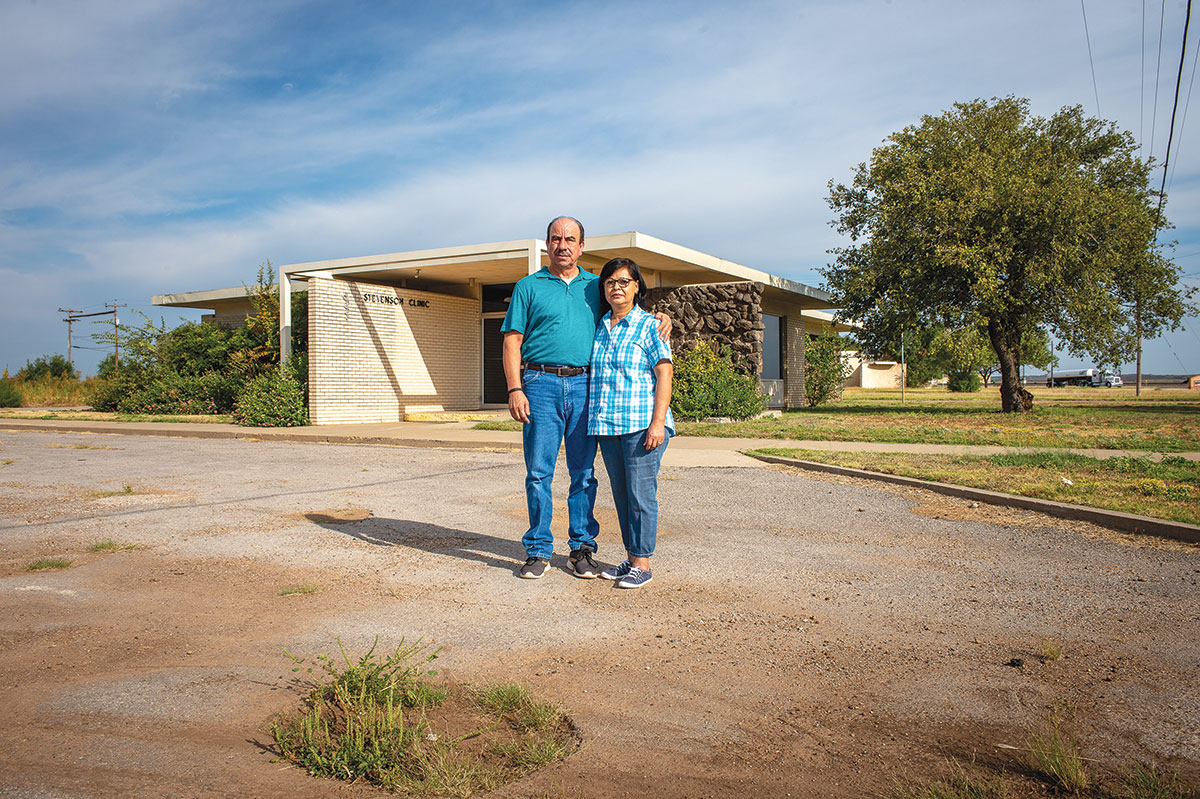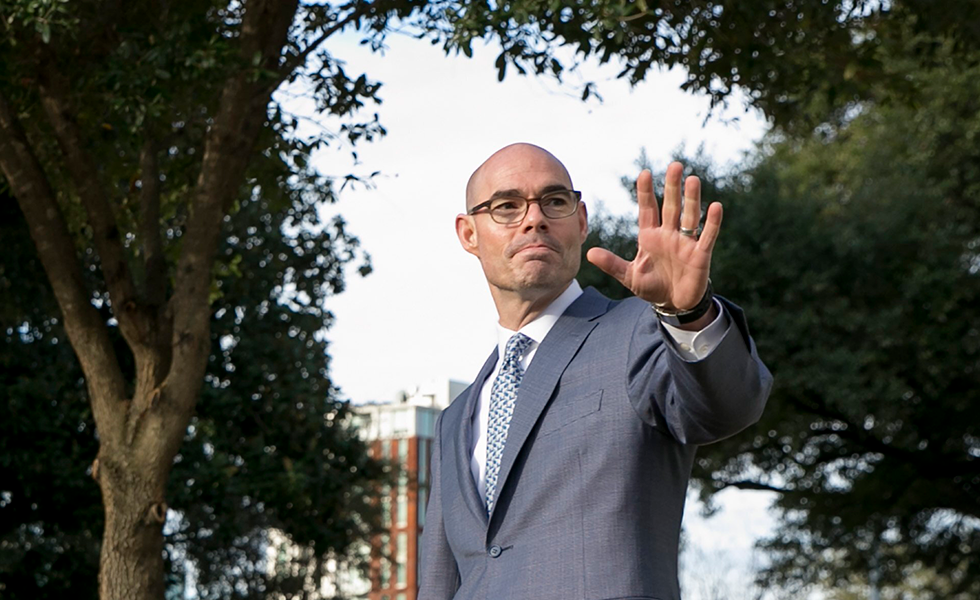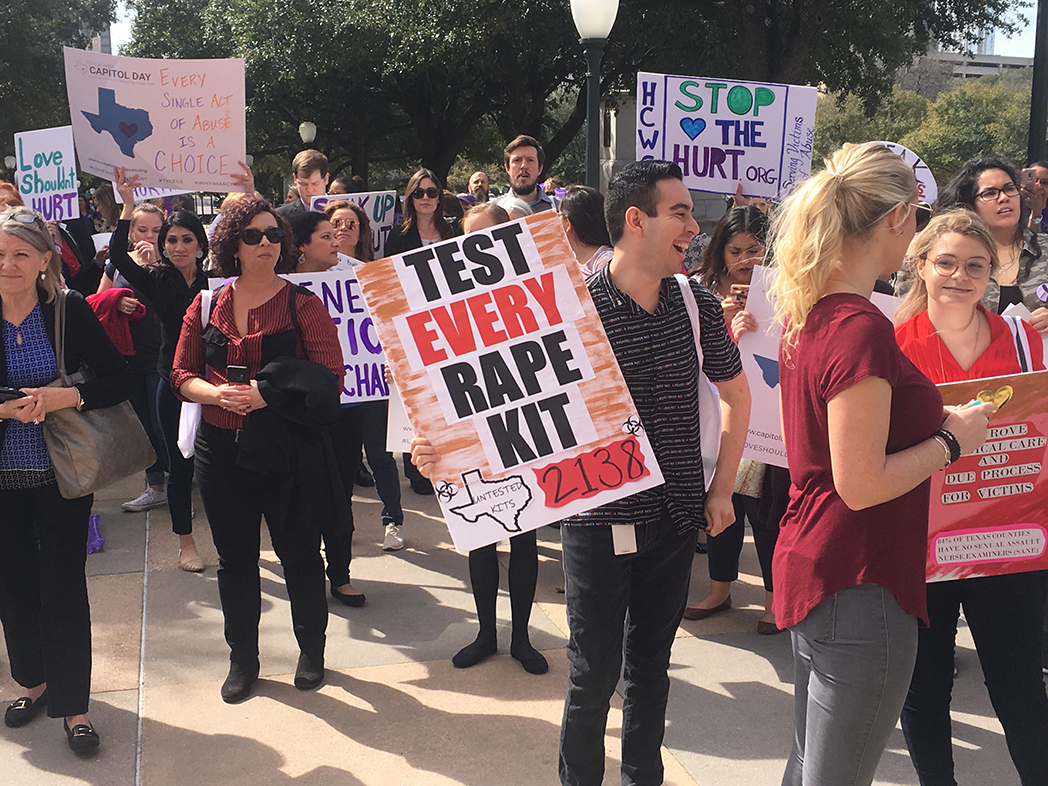
Texas Lawmakers Took on Sexual Assault this Session, but Largely Ignored Sexual Harassment
The state added more than $75 million toward services for sexual assault survivors, but failed to improve protections for workers after pushback from the business lobby.

During a press conference at the beginning of the legislative session in January, state Representative Victoria Neave praised women for speaking out about sexual assault and harassment on social media and promised to pass legislation to help them.
“We are ready to make history again,” the Dallas Democrat said. “We are in a special time right now that has created an environment where women have found the bravery to speak out. We understand when people say ‘Me Too.’”
Now that the session is over, advocates and lawmakers say Neave and others who prioritized sexual assault legislation followed through on that promise. That’s largely thanks to increased awareness of issues such as the rape kit backlog, as well as a rare bipartisan consensus and a large surplus in the state budget.
“This is the most significant session I’ve experienced, in terms of budget investments and smart, strategic bills related to sexual assault,” said Chris Kaiser, policy director for Texas Association Against Sexual Assault. “It exceeded our expectations in every way.”
All told, lawmakers put more than $75 million in new funding toward helping survivors of sexual assault and passed bills overhauling how the state handles the collection and storage of sexual assault evidence, extending the amount of time survivors of childhood sexual abuse have to bring charges, requiring special training for law enforcement, and strengthening Title IX policies at public and private schools.
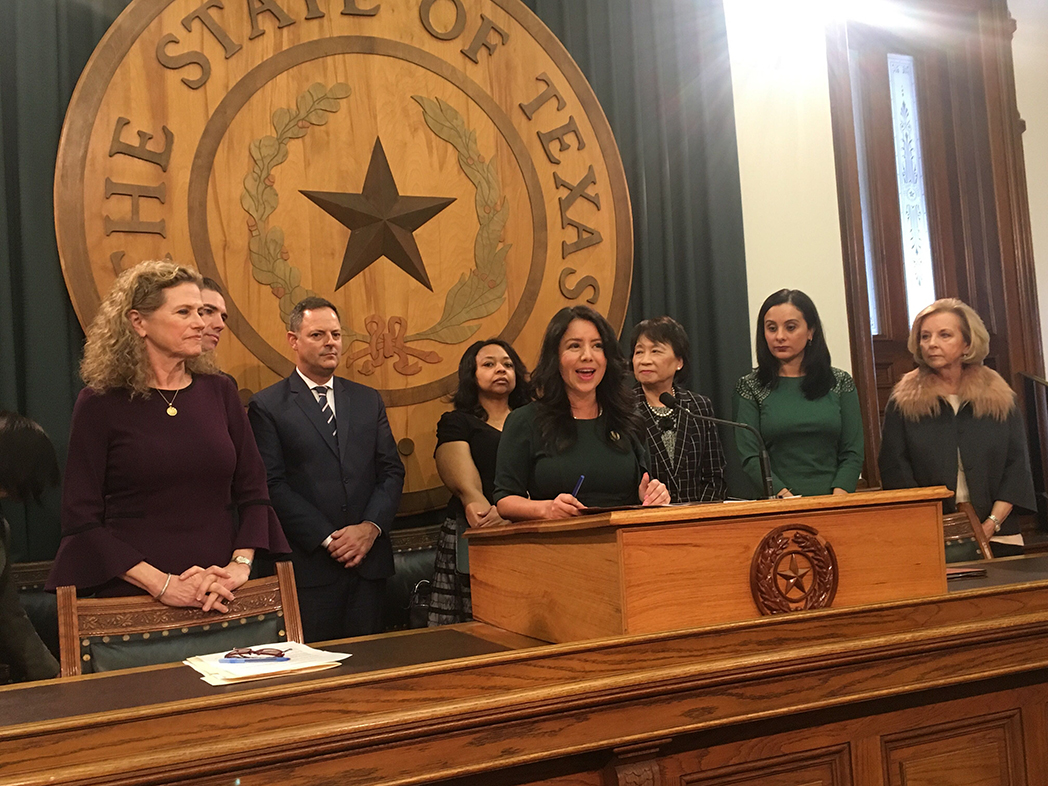
Kaiser, who has been with the advocacy group for 10 years, said some of the success this session was a result of Neave’s work over the last two years. Neave convened a task force in April 2018 to study systemic issues related to sexual assault and harassment, then filed legislation based on the findings. The solutions in her bills range from expediting payments to hospitals that provide sexual assault exams to increasing legal protections for people who are vulnerable to sexual assault. But the most important bill she passed, according to Kaiser, is House Bill 8.
HB 8 extends the statute of limitations for cases in which sexual assault evidence exists but has not been tested or matched with a suspect, sets strict timelines for the testing of rape kits and requires a new audit of all backlogged rape kits in the state. The legislation builds on the work of former state senator Wendy Davis, who brought attention to Texas’ rape kit backlog in 2011. Since then, lawmakers have had mixed success pushing for reforms to ensure kits are tested more promptly, such as increasing funding for state crime labs and setting timelines for testing. But none of these were as comprehensive as HB 8, nor come with as much funding. As of 2017, more than 2,000 rape kits were still collecting dust in Texas while victims waited for justice.
“Last session the budget office thought they had this issue solved,” Kaiser said, “As we peeled the layers back, we realized it was a bigger problem than we thought.”
In total, the state budget includes over $55 million in new funding for rape kit testing. Neave worked with Representative Donna Howard, D-Austin, and Senator Jane Nelson, R-Flower Mound, to secure $50 million in new funding for the Department of Public Safety to invest in doubling the capacity of its crime labs, which test rape kits for a large portion of law enforcement agencies in the state. The budget also includes $5 million for the University of North Texas to conduct rape kit testing, as well as $1.8 million for Sam Houston State University to train new toxicology lab techs.
“This is the most significant session I’ve experienced, in terms of budget investments and smart, strategic bills related to sexual assault.”
In addition to funding rape kit testing, lawmakers boosted statewide access to sexual assault nurse examiners, who perform rape kit exams at certified facilities and hospitals. Howard, who is on the House Appropriations Committee, secured $6 million to create a grant program to incentivize hospitals to offer sexual assault exams. Nelson, who chairs the Senate Finance Committee, passed a bill and secured $1 million to create a telehealth center that will allow some sexual assault exams in underserved areas to be done remotely.
Howard also successfully passed a bill and attached $1.3 million to create a sexual assault task force in the Governor’s Office to oversee the improvements at state crime labs, as well as to collect data and make legislative suggestions about other ways to improve services for survivors. This work follows Howard’s efforts in 2017 to find long-term solutions to issues related to sexual assault, including passing legislation last session to create a statewide system to track rape kits that is set to launch this September.
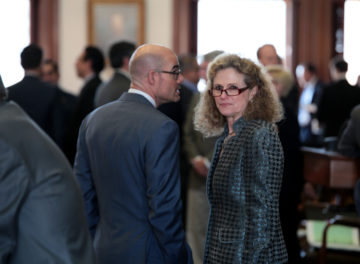
“This was the time that it all came together,” Howard said. “Having additional dollars to work with this session made that possible, as did having such a raised consciousness among legislators.”
While these bills sailed through both chambers with bipartisan support, legislation addressing sexual harassment was met with less enthusiasm. Almost as many bills were filed to help victims of sexual harassment as survivors of sexual assault, but fewer passed. Advocates say that’s likely because many of the harassment bills sought to increase protections for workers — a tougher political ask.
“Any time you try to amend the labor code to increase worker protections, you’re going to run up against the business lobby,” said Kaiser. “There are more natural opponents in that area than in the area of sexual assault.”
Neave filed eight bills related to harassment, none of which passed. The solutions in the bills ranged from outlawing employers’ use of nondisclosure agreements to increasing the maximum amount employers can be fined in harassment lawsuits. Though some of the bills were voted out of committee, they failed to reach the House floor. Neave confirmed that this was due to pushback from the business lobby.
“I think we have to have a serious conversation and get them at the table, because this is not acceptable,” she told the Observer.
The most important harassment bill of the session died in the House after it was not brought up for a vote before the midnight deadline on May 21. Senate Bill 46, which had more than 50 co-sponsors, would have allowed workers at businesses with fewer than 15 employees to file sexual harassment claims with the Texas Workforce Commission. Currently, such small businesses are immune from these claims, meaning nearly 300,000 workers in Texas have limited legal recourse against workplace sexual harassment.
Freshman state Representative Erin Zwiener, D-Driftwood, who carried the bill in the House, said she was disappointed House leadership didn’t prioritize the measure, which she plans to refile next session.
“I find it extra frustrating, because while we did do some good work this session around sexual assault, we didn’t do that much about sexual harassment,” she said. “And so much about the #MeToo movement was about sexual harassment and how prevalent that is in the workplace.”


